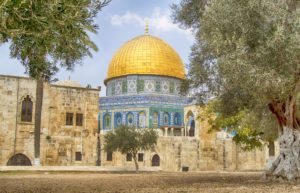
Share this Blog
Share
The Virtue of Ramadan
The Virtue of Ramadan
The Merits of Ramadan
The ninth month of the Islamic calendar is called “Ramadan” and it is the most meritorious month of the whole year. Since there are many specific rules peculiar to this, month, we would like to deal with its characteristics in a rather detailed manner under different sections.THE PHILOSOPHY OF RAMADAN
The Holy Qur’an has expressly told us that the basic objective for which man is created by Allah is that he “worships” Himوَمَا خَلَقْتُ ٱلْجِنَّ وَٱلْإِنسَ إِلَّا لِيَعْبُدُونِ
And I did not create Jinn and human beings except that they should worship Me
HOW TO SPEND RAMADAN
The month of Ramadan is the season of divine blessings. It is the month of purification, it is meant for annual renovation of the inner spiritual qualities. It is a golden opportunity for every Muslim to strengthen his Iman, to purify his heart and soul and to remove the evil effects of the sins committed by him. This month invites a Muslim to minimize his other mundane involvements and maximize the acts of worship. One should plan his schedule for this month before-hand, so as to spare maximum time for ‘ibadah.a) سبحان الله وبحمده سبحان الله العضيم
b) سبحان الله و الحمد لله ولا إله إلا الله والله أكبر
c) استغفر الله ربي من كل ذنب وأتوب إليه
d) اللهم صل علی محمد النبي الأمي وعلى آله وصحبه وسلم
e) لا حول ولا قوة إلا بالله العلي العظيم
WHAT SHOULD BE AVOIDED IN RAMADAN
All sinful acts should be avoided completely during the month of Ramadan. Although the sinful acts are totally prohibited in Shariah, whether in Ramadan or at any other time, but their prohibition becomes more severe in this month. It is evident that every Muslim avoids certain lawful acts, like eating and drinking, during the fasts. If he continues to commit sins in Ramadan, it will be a mockery to avoid lawful things and yet be engaged in unlawful acts never allowed in Shari’ah. Thus, the abstinence from sins becomes all the more necessary in this month.YOUR WEEKLY DOSE OF
I’tikaf During The Last Ten Days
Narrated `Abdullah bin `Umar:Share this Blog
Tuition Payment by Etransfer
Please send your etrasnfer in the full amount of your course tuition to
finances@ihsan.ca
IMPORTANT: The full name and email address you used to register for the course must be added as a note to the etrasnfer to assure the payment is applied to your account.